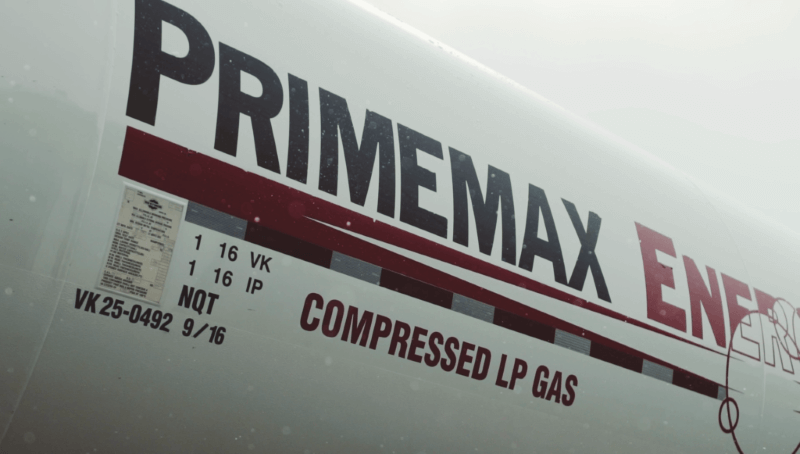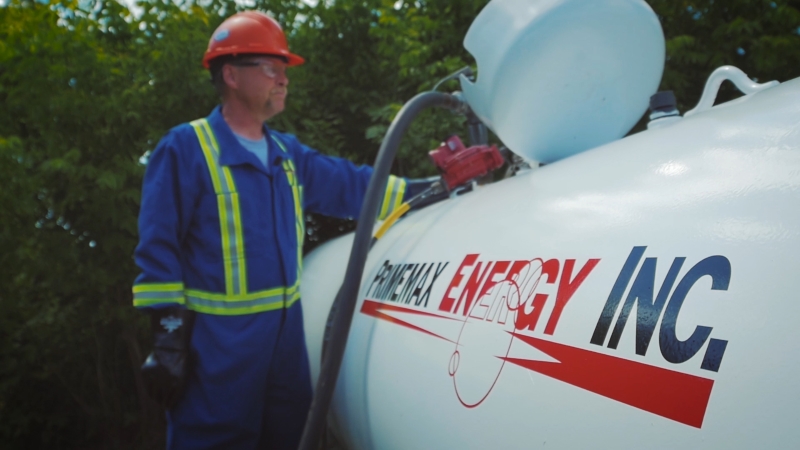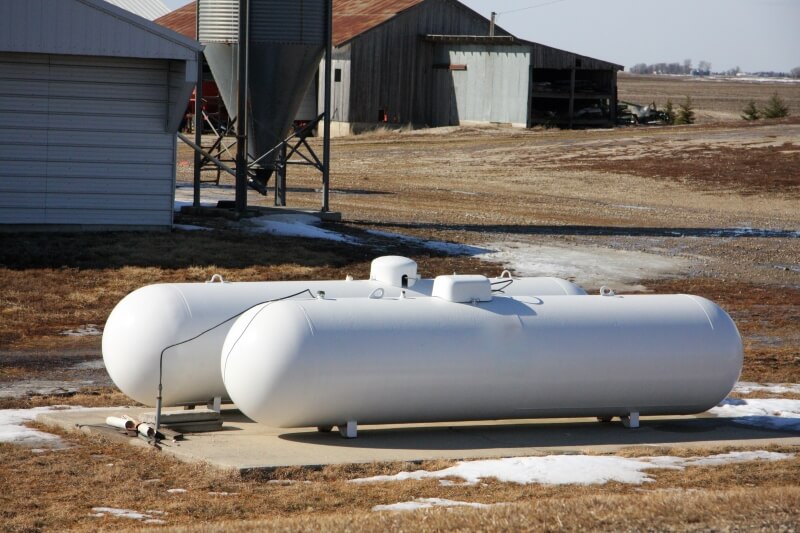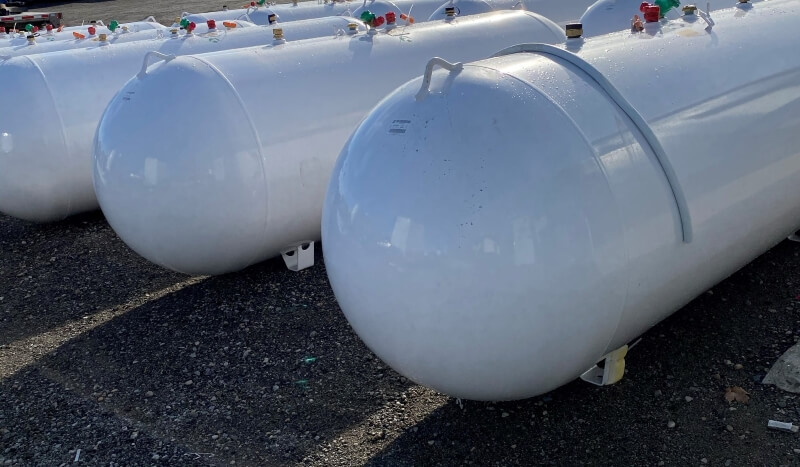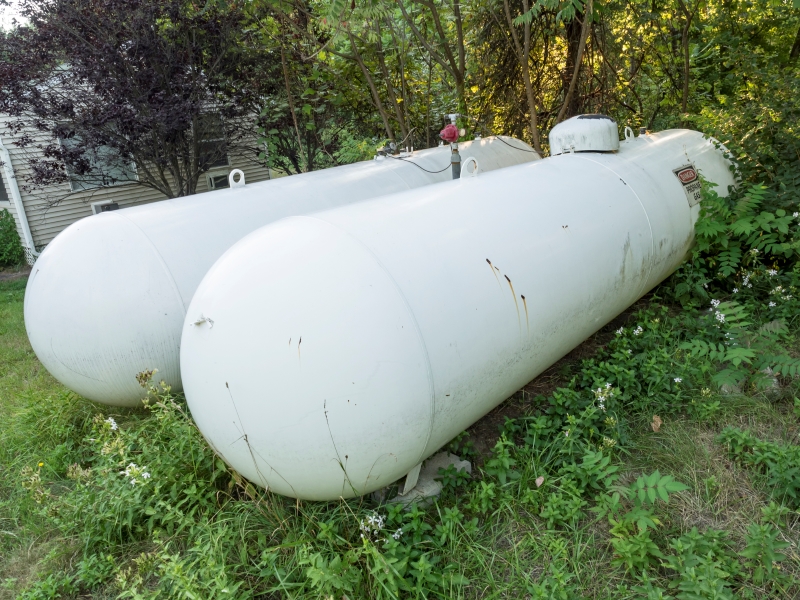Does Propane Go Bad? Learn About Propane’s Longevity
Do you depend on propane to heat your home or fuel your appliances? Due to the seasonal nature of its use, many homeowners question whether the fuel can “expire” or “go bad” over time. This common misconception can lead to concerns about its safety, efficiency, and longevity.
We address the top questions about storage, tank safety, and reliability in this blog. Keep reading to discover why propane is a long-lasting, safe, and efficient energy option for your home.
How long can you keep propane stored?
Many fuel sources, like gasoline and diesel, degrade over time, causing them to lose their effectiveness and efficiency. However, propane offers a significant advantage: when stored under safe and proper conditions, it can be stored indefinitely without losing its potency. Unlike other fuels, it does not expire or degrade over time, making it a reliable, long-term energy solution. While tanks don’t have an expiration date, it’s crucial to perform regular equipment inspections to maintain safety and efficiency.
Does propane dissipate in the tank?
Your tank stores propane as a liquid, which expands into a gas that fuels your appliances. During warmer weather, this evaporation process speeds up, converting to its gaseous form more quickly. For safe and efficient operation, you should fill the tank only to 80% capacity. This level leaves room for expansion and prevents over-pressurization. While transitioning from liquid to gas, propane won’t evaporate or leak from a securely sealed tank. You can rest easy, knowing you’ll retain your fuel supply.
What happens if you use old fuel?
While it doesn’t expire, using “old propane” might raise concerns. Most users cycle through their fuel regularly, but many rely on it primarily for heating in winter. This can cause concern about the safety and effectiveness of the fuel left in the tank over the summer. Thanks to its stable chemical properties, propane retains its effectiveness indefinitely, no matter how long someone stores it. Whether you use propane frequently or leave it in the tank for months, it will still burn efficiently and cleanly whenever needed.
Propane’s extended shelf life makes it an ideal fuel choice for rural homeowners seeking dependable, low-maintenance energy.
How do you tell if a propane tank is expired?
Knowing the age of your tank and understanding when it might be nearing the end of its safe lifespan is important. You’ll find a date stamped in month-year format on the data plate, typically found near the top of the tank. This will tell you the date of manufacture. If you see a number like “05-18,” for example, this means your tank was manufactured in May 2018.
How long do propane tanks last?
Propane cylinders are good for 10 years, while larger tanks, like the ones that heat your home or power your appliances, can last for 25 years. If it’s been more than 10 years since that date, you should get your tank inspected by a professional.
At Primemax Energy, we’re here to assist you in ensuring that your tanks are safe and up-to-date. Reach out to us to set up a time for an inspection.
How old can a tank be before it needs to be recertified?
When you decide to install a propane system in your rural home, one of the first steps will be a tank inspection. This initial inspection ensures that the tank is in good condition, that it has been manufactured according to the appropriate safety standards, and that it is fit for its purpose. Our trained professionals at Primemax Energy will check for any signs of damage or manufacturing defects that could compromise safety. They will also ensure that the tank is correctly situated for safe and efficient operation.
Following this initial installation and inspection, you must reinspect tanks every 5 years. Regular inspections allow you to detect any potential issues early, such as corrosion, leaks, or damage to the pressure relief device.
When do propane cylinders need to be recertified?
A qualified gas technician must recertify and re-stamp cylinders every 10 years. The collar will display the manufacture date.
We’ll ensure you can continue to depend on your propane system for all your home heating and energy needs, year after year. Contact us today to schedule your tank installation! If you’re considering switching to propane or are looking for reliable propane delivery, request pricing today.

